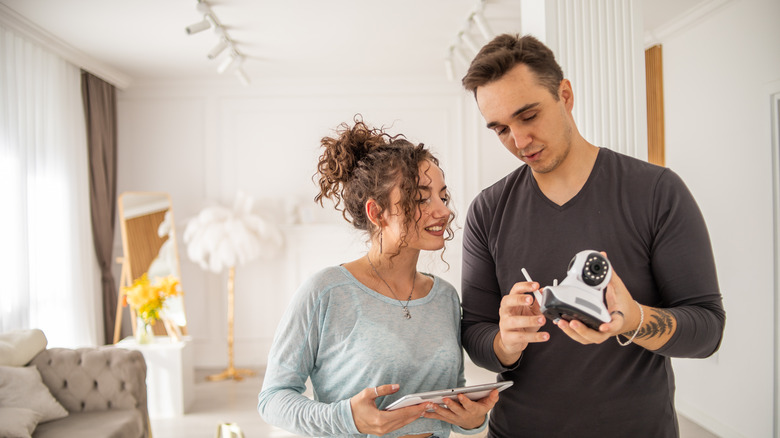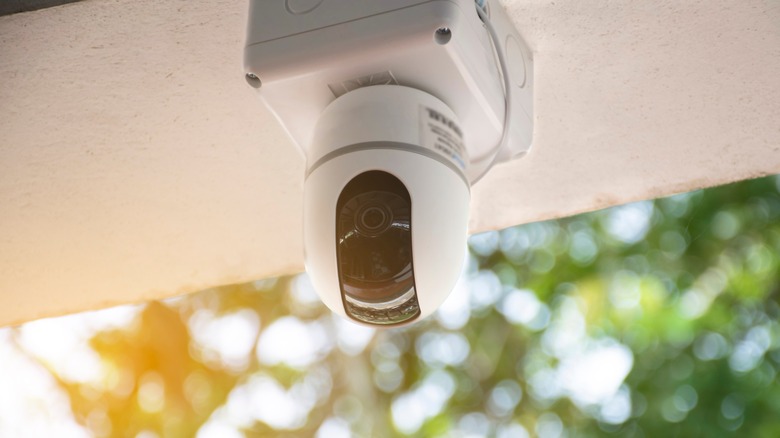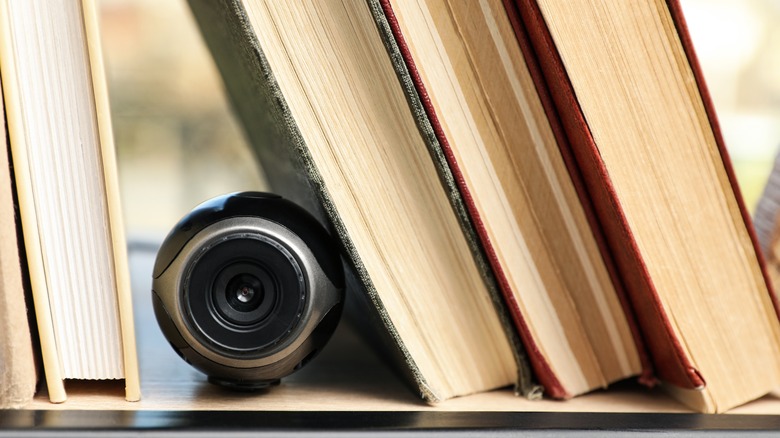What To Know About Airbnb's New Security Camera Policy Before Booking Your Next Stay
On Monday, March 11, 2024, Airbnb unveiled a major policy update that may allow guests to rest easier during their stay. Airbnb hosts can no longer place cameras within their rentals under any circumstances. Some outdoor cameras, such as doorbell cameras, will still be permitted but must be disclosed to guests before booking and cannot point towards any indoor spaces. Furthermore, cameras will also be banned in any outdoor spaces where privacy might be a priority, "like an enclosed outdoor shower or sauna," according to a statement released by the online homestay booking site. The change will impact more than 5 million hosts worldwide, as well as hundreds of millions of the site's short-term renters.
Airbnb announced that its decision to ban cameras aims to help simplify the rules for hosts and guests alike so that everyone has clear expectations of what is and isn't appropriate. The changes were made "in consultation with our guests, hosts, and privacy experts," according to Juniper Downs, Airbnb's head of community policy and partnerships.
The policy change applies to all Airbnb listings around the world. The new rules will go into effect on April 30, 2024, so hosts have time to remove any existing cameras and ensure they comply. Following the deadline, hosts who fail to remove indoor cameras may have their listings removed from the site. After April 30, guests will have the option to report any cameras and can feel safer when staying in Airbnbs.
Airbnb's previous surveillance camera policy
Before Airbnb's recent policy announcement, surveillance cameras were allowed in specific indoor spaces within rentals. Approved spaces for cameras included common spaces like living rooms, hallways, and kitchens. Private spaces, like bathrooms and bedrooms, were never allowed to have cameras.
Previously, Airbnb hosts may have decided to place indoor cameras in shared spaces for their own peace of mind and to discourage theft, unwanted parties, or other hidden dangers of Airbnbs. While the cameras were permitted, the hosts who chose to use video surveillance were required to inform guests of each camera and its specific location.
Hidden and undisclosed cameras have never been permitted, according to Airbnb. Moving forward, no cameras will be allowed inside the listings, even if they're unplugged and powered off. With the new policy changes, hosts won't be able to make the mistake of forgetting to power off or unplug their security cameras, and guests won't have to worry as much. If you find any camera within an Airbnb, it will be a strict policy violation. In making this change, Airbnb is joining its competitor Vrbo, which has banned indoor cameras since 2022.
Hidden cameras cause fear and outrage
Airbnb's announcement implies that the policy change is for the sake of simplicity, clarity, and privacy. The change will undoubtedly help many guests feel safer during their stay and hopefully ease the anxieties of potential Airbnb customers who are worried about video surveillance.
While hidden cameras have always been prohibited in Airbnb listings, there have been several instances that have created negative media attention for the company. In March of 2019, The Atlantic published an article entitled "Airbnb Has a Hidden-Camera Problem," which outlined some disturbing events reported by guests and questioned whether the popular homestay booking site was doing enough to combat the problem. Several stories of hidden cameras have gone viral on social media, sparking concern and outrage. A 2023 survey from IPX1031 showed that 58% of the 2,000 participants feared hidden cameras in their Airbnb rentals — 11% claimed they discovered hidden cameras while staying in an Airbnb.
Creepy hosts may still try to get away with hiding cameras, but hopefully, Airbnb guests will feel safer after the official indoor-camera ban goes into effect at the end of April, ensuring plenty of privacy and protection against hidden cameras while traveling.


